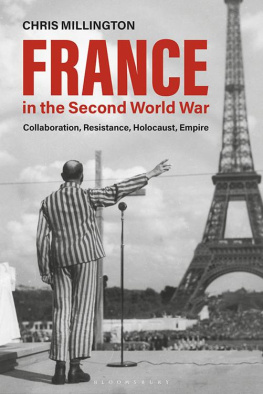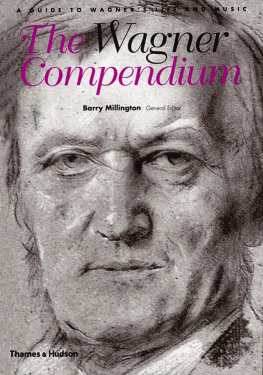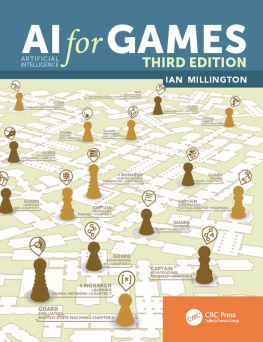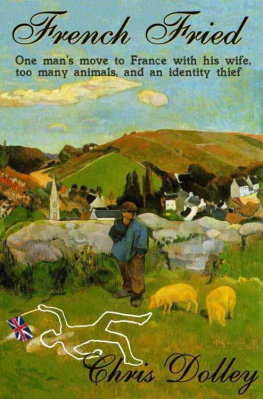Chris Millington - France in the Second World War
Here you can read online Chris Millington - France in the Second World War full text of the book (entire story) in english for free. Download pdf and epub, get meaning, cover and reviews about this ebook. year: 2020, publisher: Bloomsbury Publishing, genre: Romance novel. Description of the work, (preface) as well as reviews are available. Best literature library LitArk.com created for fans of good reading and offers a wide selection of genres:
Romance novel
Science fiction
Adventure
Detective
Science
History
Home and family
Prose
Art
Politics
Computer
Non-fiction
Religion
Business
Children
Humor
Choose a favorite category and find really read worthwhile books. Enjoy immersion in the world of imagination, feel the emotions of the characters or learn something new for yourself, make an fascinating discovery.
- Book:France in the Second World War
- Author:
- Publisher:Bloomsbury Publishing
- Genre:
- Year:2020
- Rating:3 / 5
- Favourites:Add to favourites
- Your mark:
- 60
- 1
- 2
- 3
- 4
- 5
France in the Second World War: summary, description and annotation
We offer to read an annotation, description, summary or preface (depends on what the author of the book "France in the Second World War" wrote himself). If you haven't found the necessary information about the book — write in the comments, we will try to find it.
France in the Second World War — read online for free the complete book (whole text) full work
Below is the text of the book, divided by pages. System saving the place of the last page read, allows you to conveniently read the book "France in the Second World War" online for free, without having to search again every time where you left off. Put a bookmark, and you can go to the page where you finished reading at any time.
Font size:
Interval:
Bookmark:

France in the Second World War
France in the Second World War
Collaboration, Resistance, Holocaust, Empire
Chris Millington

For Madeleine
CONTENTS
Figures
Map
Table
On 9 May 1940, Adolf Hitler boasted to the leaders of the German army: Gentlemen, you are about to witness the most famous victory in history. The Nazi invasion of Western Europe had begun. Belgium, Luxembourg and the Netherlands fell quickly. Hitlers armies needed just six weeks to conquer France. The German invasion through the difficult terrain of the Ardennes region took Allied military leaders by surprise. Unable to adapt to the unexpected situation and with no plan B, the Western powers were routed within days. As the defeated British fled back across the Channel, the French Prime Minister, First World War hero Marshal Philippe Ptain, requested an Armistice; thus began the Dark Years of the Occupation.
Hitler inflicted a humiliating peace upon France. A punitive financial settlement saw the French saddled with the costs of their own occupation. The army was reduced to a rump and the navy confined to port. Over a million prisoners of war resided in German camps as hostages. France itself was dismembered and carved into a number of zones, the largest of which were the Occupied Northern Zone and the Southern Free Zone. An internal border the Demarcation Line separated the North from the South. In the northeast of France, the Third Reich annexed and rapidly Germanized the region of Alsace and the department of the Moselle. In the southeast, 800 square kilometres of territory fell under Italian control. Rome seized and Italianized the town of Menton where shops now displayed the sign, Here we speak Italian and give the fascist salute.
A despairing French nation turned to Ptain for comfort. Few people protested when, in July 1940, the Marshal liquidated the Third Republic, the regime that had governed France since 1870. Many French blamed the democratic Republic for the catastrophe of the defeat. Ptain subsequently founded the Etat Franais (French State), otherwise known as the Vichy regime (after the southern spa town where it was based). Vichy promised to revive the country through a root-and-branch reform of political, social, economic and cultural life the National Revolution and the vigorous persecution of Frances alleged enemies, namely Jews, communists and Freemasons. At the same time, Ptain sought to win a place in Hitlers New Order through the policy of collaboration. In the space of barely two months in 1940, France had swapped democracy for authoritarianism.
The French Empire largely remained under Vichys control, a fact that ensured that the National Revolution was a global experiment. Ptains laws applied as much to the 25 million people in Indochina and the 16 million people in French West Africa as they did to the tiniest hamlet in rural France. Still, experiences necessarily diverged and differed. Colonial governors and their subordinates adapted directives from the mainland to local contexts while preserving their broadly exclusionary and repressive nature. Meanwhile, for many subjects of the Empire, the war was not marked by foreign invasion and occupation; in imperial territories, the French were the invaders and occupiers. Consequently, in the colonial memory of the war the terms to describe the period differ. For the Caribbean peoples of Guadeloupe, for example, it means little to call the Second World War the Dark Years or the Occupation; the period is remembered instead as Life in the Time of Sorin ( la vie an tan Sorin ), named after the brutally repressive wartime governor of the island Constant Sorin.
For the French who refused to accept Ptains leadership, General Charles de Gaulle urged resistance. De Gaulle and his France Libre (Free France) movement waged a propaganda and military campaign against the Vichy regime from London and Brazzaville (in the French Congo). The Generals campaign to liberate France and its territories was of global dimensions: in 1940, colonial peoples joined the nascent Free French and de Gaulles early power base was not located in the UK but in French Equatorial Africa. A plethora of resistance movements and networks, large and small, operated in French territory. These groups worked to turn public opinion against Vichy and obstruct the Occupier. Only during 1942 did de Gaulle make contact with resisters within France itself. The unification of the Free French and the internal resistance during 19421943 allowed the French to make an important contribution to the liberation of their country in summer 1944.
The painful experience of the war years has marked the decades since 1944, evoked in novels and films, history books (it is perhaps the most intensively studied period in French history) and educational curricula, commemorations and monuments. By the end of the 1980s, according to Henry Rousso, Frances preoccupation with its Vichy past had become pathological; the so-called Vichy Syndrome ensured that this was a past that does not pass.
This book is an introduction to the Dark Years. I do not pretend that it offers an exhaustive history of the subject; it is a survey rather than an encyclopaedia . The literature on France and its Empire during 19401944 is huge. It is the goal of France in the Second Wold War to pay suitable heed to this vast historiography while presenting it in a succinct and logical form. Aimed at an Anglophone audience, it comprises the aspects of the war and Occupation most important to an understanding of the subject while accounting for the French experience in all its diversity. To distil the topic of each chapter into a clear and manageable essay was tricky. I wrote each chapter with my students in mind and I therefore offer the reader a comprehensive and readable study aid suitable for university classes of all levels.
I dedicate this book to Madeleine who, despite her young age, is already aware of her dads intermittent disappearances to a place called France. I hope that she will develop the love and appreciation of foreign cultures, histories, attitudes and languages that are so lacking in todays world.
| 2DB | Deuxime Division Blinde |
| AFAT | Arme Fminine de lArme de Terre |
| BCRA | Bureau Central de Renseignement et dAction |
| BEF | British Expeditionary Force |
| CDL | Comits Dpartementaux de Libration |
| CDLL | Ceux de la Libration |
| CDLR | Ceux de la Rsistance |
| CFLN | Comit Franais de Libration Nationale |
| CGQJ | Commissariat Gnral aux Questions Juives |
| CNR | Conseil National de la Rsistance |
| CVF | Corps des Volontaires Franaises |
| FAFL | Forces Ariennes Franaises Libres |
| FFI | Forces Franaises de lIntrieur |
| FFL | Forces Franaises Libres |
| FLN | Front de la Librtaion Nationale |
| FN | Front National |
| FTP | Francs-Tireurs et Partisans |
| GTE | Groupements de Travailleurs trangers |
| LVF | Lgion des Volontaires Franais contre le Bolchevisme |
| MbF | Militrbefehlshaber in Frankreich |
| MSR | Mouvement Social Rvolutionnaire |
| MUR | Mouvements Unis de la Rsistance |
| OCM | Organisation Civile et militaire |
| OVRA |
Font size:
Interval:
Bookmark:
Similar books «France in the Second World War»
Look at similar books to France in the Second World War. We have selected literature similar in name and meaning in the hope of providing readers with more options to find new, interesting, not yet read works.
Discussion, reviews of the book France in the Second World War and just readers' own opinions. Leave your comments, write what you think about the work, its meaning or the main characters. Specify what exactly you liked and what you didn't like, and why you think so.









